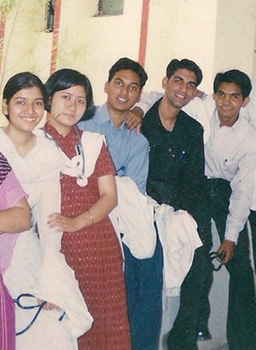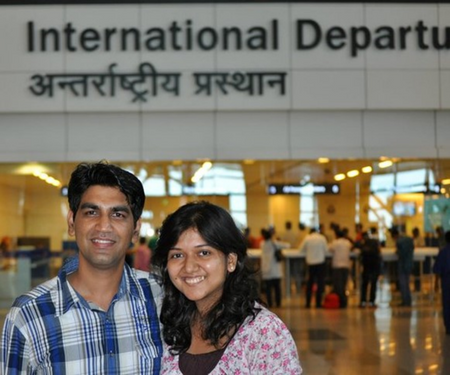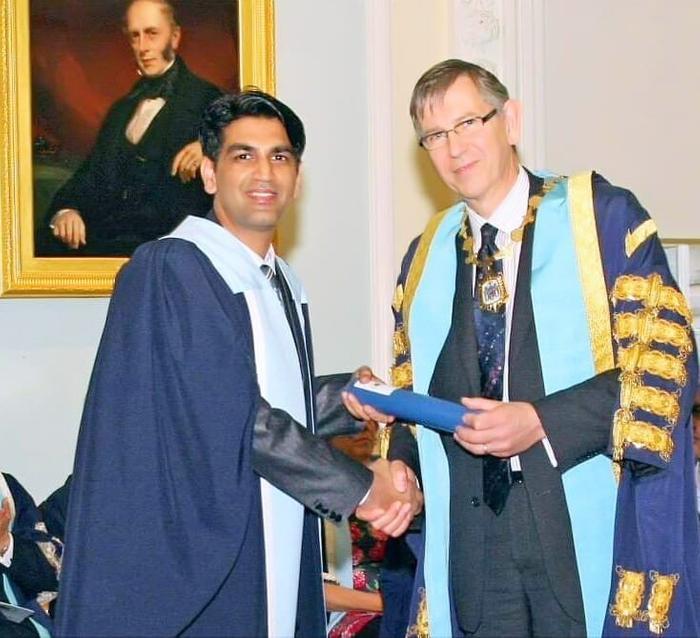Journey to the Specialist Register: CESR Route
By Ashish Narang
Speciality Doctor
Starting your first job in orthopaedics as an international medical graduate (IMG) in the UK can sometimes be as daunting as getting into water for the first time to learn swimming. You are full of energy, as you have always dreamt to be an orthopaedic consultant in the UK; though, at the same time, you are totally unaware of how the orthopaedic training programme is structured, and what are the alternatives to the speciality training programme. When I started my first job as a Clinical Fellow in Orthopaedics, I was excited and determined to work hard to progress my career; however, I did not know what career options I had, and where to start? I was fortunate enough to have found really helpful mentors in this job who explained about the process for getting a national training number as well as the option of getting on the specialist register via the Certificate for Eligibility to Specialist Register (CESR) route (previously known as article 14). Due to the visa restrictions at the time, I would have to wait for five years before I could apply for the national training number hence, I decided to follow the CESR route.


Following this decision, I started searching for guidance to meet the pre-requisites for entry to the specialist register. The available information regarding tips and tricks to efficiently plan your application via the CESR route was scanty and scattered on the internet. There was nowhere that you could find systematic information about the process except for verbal advice from your senior colleagues. At that time, all I understood about CESR was that I need to get regular feedback about my work in the form of case based discussions (CBDs) and procedure based assessments (PBAs). I would also need to pass the FRCS(T&O) exam to apply for CESR; however, over a period of time, I gathered that the process is much more than just these two requirements. If I could go back in time and change only one thing, then that would be starting my CESR application on GMC online several years earlier than I finally did. The application form itself guides you through all other requirements needed in addition to your qualifications and feedback. A guidance to fill the application can also be found from the JCST here.
An early start of the process would mean that small bits of the application such as uploading a job contract when starting a new job, could be completed as things happen, instead of spending much more time and effort at the end. I would recommend taking out a subscription of www.iscp.ac.uk which will help you in getting PBAs and CBDs signed electronically. However, if you prefer to get them on paper, then they can be downloaded from the same site without any subscription charge. The same website is useful to find the latest curriculum and all your training should be a mirror image of this curriculum. Preparing for the FRCS exam is in itself a huge task and the duration for that will depend on your background knowledge, reading capacity and family commitments. There are always local deanery teaching activities which you could be allowed to attend; however, if due to service commitments you can’t make it, then there are good online resources such as Orthopaedic Academy where you can find many useful FRCS teaching videos and courses. One thing which I started quite late, was to have a CESR folder on my laptop with all subfolders as per the application such as audits, appraisals, contracts and course certificates. Whenever I attended a course or conference, towards the end, I would dictate my reflections in my phone and transfer the course agenda and certificate in the CESR folder on the same day. It is also useful to keep a record of employment contracts of every hospital you work at and your job plan and on call rota in this folder. I would also highly recommend to always keep backing up the folder onto your Google Drive or any cloud storage facility to avoid loss of hard work due to any hardware failure.

A very important aspect of the application is to demonstrate surgical skills by having at least 1,800 operations on the logbook with at least 70% as first surgeon, hence it is very important to work in centres which are busy and have regular trauma and elective lists. It is equally important to record all operations in your logbook account on the day of surgery or else you will often miss many, an elogbook phone app can be useful of this purpose. There are five mandatory courses for this application which are the ATLS Provider course, Train the Trainer course, Research Methodology course, Good Clinical Practice and a course on leadership and management in the NHS. In addition to these, it is highly advisable to take part in speciality specific courses which should be reflected in your yearly appraisals.
Another aspect of your application which has to be started early is getting involved in research leading on to two presentations and two publications. It also counts to recruit patients in national level randomised controlled trials and pursuing a postgraduate qualification in research. It might be advantageous to work in University Teaching Hospitals where often there are multiple research projects running simultaneously which you can get involved.
Two further activities which need regular participation are teaching and audits. Most hospitals will have regular opportunities to participate in teaching activities in the department and hospital academic days; however, it is vital to get feedback after teaching and also reflect on the feedback to improve your next presentation. It will give additional points for being a tutor for medical students and becoming an ATLS instructor. Again, in these two roles it is very important to keep collecting and reflecting on feedback. Similarly, it is a mandatory requirement to complete one audit every year and two audit topics should be re-audited to complete the loop. The audits should preferably on national level guidelines such as NICE or BOAST and it should be on topics where there is scope for improvement so that you could show change in practice after your initial audit.
One aspect which is often neglected is taking part in management activities as this might feel daunting. With some planning and initiative, this requirement can be achieved by taking part in junior doctor’s induction and rota management, taking part in service improvement meetings, multi-disciplinary team meetings (MDTs) as well as clinical governance meetings in the hospital you are working. It is vital again to keep a record of meeting invites, agendas and minutes of the meeting whenever you attend one. It is helpful to present a quality improvement project in these meetings to show your active involvement, rather than just your attendance.
Finally, in the latter half of the application, evidence is needed for participation in regular appraisals, setting of personal development plans and getting multi-source feedback. These are expected to be done on an annual basis and usually the revalidation department in every hospital supports you for completing this requirement. It is also paramount to refresh all your mandatory trust trainings such as those on infection control, information governance and consent before submission of the application.
This is an overview of the CESR application process in orthopaedics, however it is an ever changing process so it is vital to keep abreast with latest changes to curriculum such as the introduction of Multi-Consultant Reports (MCRs) and Generic Professional Capabilities (GCPs) which will soon be mandatory for everyone. I was once told that, to complete the CESR process you need the fighting spirit of a warrior along with the patience of a saint. I totally resonate with this expression, as it’s a long and gruelling process, where you are expected to be on your toes, but after submission it can take more than a year to have a decision. However, things seem to be improving in both aspects as lots of support is now available for passing the FRCS and submitting the application via chat groups on telegram and also GMC response times after recovering from the COVID shock.
In conclusion, completing the CESR application is a lengthy and arduous process which requires regular hard work for six years. But, it is worth the effort, as the rewards are very satisfying and it will make you stand out from a big heterogenous group of people who are not in a formal training programme. There will be multiple times when you would feel like quitting, but the key during such times is to seek support from seniors and on social media support groups, to get back on your feet and you will make your dreams come true.
